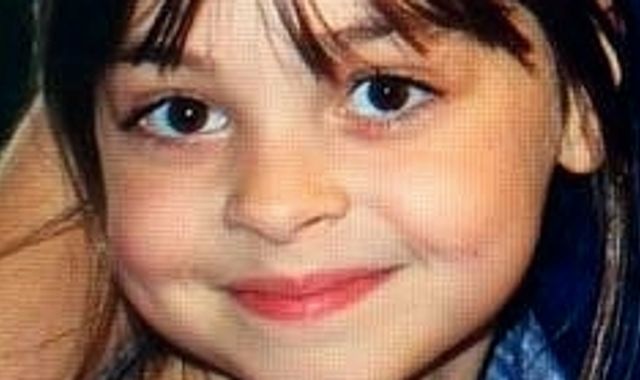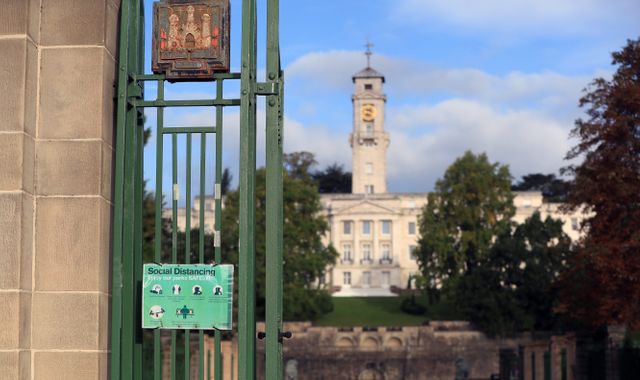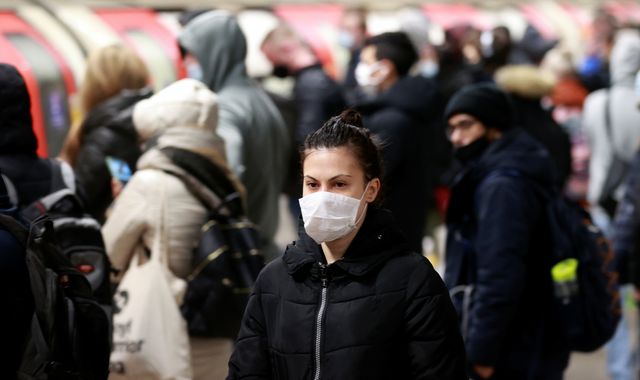Manchester bombing: Youngest victim in attack could have survived if treated faster, inquiry hears
Written by News on 18/01/2021
The youngest victim of the Manchester Arena bombing could have survived if she had received faster medical treatment from paramedics, the inquiry has heard.

Police officers were reduced to shouting over the radio in their desperation for ambulance staff to come and help them at the scene of the bombing, the inquiry was told.
Two of the victims survived the initial explosion and the inquiry named Saffie-Rose Roussos, aged eight, as the other victim who could have been saved.
The inquiry has previously heard that John Atkinson, 28, only received treatment after he was carried to paramedics by members of the public on a makeshift stretcher and suffered a heart attack an hour and 17 minutes after the blast.
Salman Abedi killed 22 men, women and children when he blew himself up in a suicide bomb attack at the end of an Ariana Grande concert in May 2017.
New details were released as the second phase of the inquiry began, focusing on the emergency response, and in particular why only one member of the ambulance staff entered the scene of the explosion for the first 40 minutes and no firefighters arrived for two hours.
Paul Greaney QC, counsel to the inquiry, told the hearing: “Most of those who died suffered injuries in bombing that were, in the view of experts, un-survivable.
“In two cases a different response may, and I underline that word ‘may’, have led to a different outcome.
“Those two cases were John Atkinson and Saffie-Rose Roussos, who we did not name in the opening.”
Saffie, from Leyland, Lancashire, was at the concert with her mother, Lisa Roussos and older sister Ashlee Bromwich.
Her mother and sister were rushed to hospital and lost contact with Saffie who was carried to ambulances by members of the public.
An expert report commissioned by lawyers for the Roussos family found she lived for more than an hour after the blast and that opportunities to help her were missed, according to the BBC.
According to the report, Saffie asked a paramedic “Am I going to die?” as she was being taken to hospital, and died from losing blood from her legs, but no tourniquets or splints were applied to reduce the bleeding.
Her father, Andrew Roussos, told Sky News of his “total shock” at what he read in the report.
He said: “Total opposite to what I had in my head altogether. I feel gutted for Saffie. I’m distraught.”
He added: “We didn’t read any reports in the first three years. And when the inquiry team said her injuries were unsurvivable we just took that as they were that severe that she could not survive.”
The inquiry heard that dozens of police officers and civilians arrived at the scene of the bombing while ambulance staff stayed back.
In the first 10 minutes after the explosion, nine police officers and three police community support officers, all from British Transport Police, were inside or very near the City Room foyer where the bomb went off.
They had been on duty at Victoria Station, underneath the arena, or nearby and brought first aid kits with them or fetched them from elsewhere.
Police were joined by five first aid specialists from an organisation working at the arena called Emergency Training UK.
In the next 10 minutes, 19 unarmed officers from Greater Manchester Police (GMP) arrived at Victoria Station, in four double crewed carriers and four tactical aid units, along with several armed response vehicles.
However, it was not until 10.53pm, 22 minutes after the explosion, that Patrick Ennis, the first paramedic on the scene, entered the City Room.
He made contact with the GMP Bronze Commander on the ground and the ETUK first aiders and left after five minutes.
Half an hour after the explosion, there were six paramedics from the North West Ambulance Service (NWAS), including an advanced paramedic, a senior paramedic and a consultant paramedic, along with an NWAS doctor at Victoria Station, but none were in the City Room.
One further ambulance arrived at Trinity Way where they stopped to tend to Saffie-Rose Roussos who was carried out of the City Room, down the 50 Pence Staircase and through the Trinity Way Link Tunnel at 10.58pm, 27 minutes after the explosion.
Mr Geaney told the inquiry: “On the basis of material generated since I made my opening statement, survivability is an issue in the case of Saffie.”
It was only at 11.14pm – 43 minutes after the explosion – that the NWAS hazardous area response team (HART) arrived at the station, which had been established in 2009 and equipped with specialist equipment and skills in order to access and treat patients in difficult and hazardous conditions after a terrorist attack.
Mr Greaney said that it was “relevant to note it did not take long at all for concerns to begin to emerge – that very night some of those on the ground expressed frustration, even extreme frustration and anger, at how events unfolded”.
He said many police officers had body-worn video and although the footage is “graphic and distressing in the extreme”, some audio will be played to the inquiry.
“It reveals the thoughts of those who were there at the time,” Mr Greaney said.
He cited the example of PC Matthew Hill who was in the City Room foyer at 11.02pm, where the explosion had taken place half an hour earlier, and was heard on his radio saying to a colleague: “We need paramedics, like f***ing yesterday.”
At 11.08pm, a PC Mark Kay walked over to his colleague PC Michael Ball and said: “There is nobody we can move really is there?”
PC Ball replied: “Not really no, they are all really badly injured. If we start moving people, we need paramedics basically.”
Sgt Kam Hare of the Greater Manchester Police Tactical Aid Unit entered the City Room at 10.50pm and recalled “shouting over the radio for paramedics to enter the City Room”.
He was said to have “emphasised” to Advance Paramedic Patrick Ennis, who was the only member of ambulance staff present in the room, “that this needed to occur” and “became frustrated that this was not, as it seemed to him, being acted on”.
Mr Greaney told the inquiry: “These are just examples from the many witnesses. They are not merely the result of detailed reflection in the months and years distanced from the moment, they were being expressed as the response itself occurred.
“Why the fire service did not attend promptly and why NWAS (North West Ambulance Service) did not enter the City Room in significant numbers are just some of the issues we will have to consider as part of the emergency response overall.
“They are not the only considerations, but they are plainly issues of significance.”
The hearing continues.
(c) Sky News 2021: Manchester bombing: Youngest victim in attack could have survived if treated faster, inquiry hears







